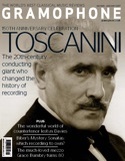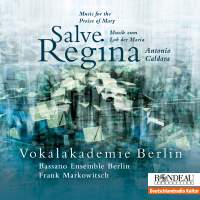Texte paru dans: / Appeared in: |
|
|
Outil de traduction (Très approximatif) |
|
|
Reviewer:
Alexandra Coghlan That this collection includes three premiere recordings speaks of the neglect Caldara has suffered compared to his contemporaries Vivaldi and Alessandro Scarlatti. The works resurrected here – a vibrant, festal Magnificat for double choir and substantial instrumental ensemble, a charming little Ave maris stella for soprano and alto duet and continuo, and a more extended, episodic Salve regina for solo tenor – are far from musical offcuts, though none quite equals the best here. The astonishing 16-voice Crucifixus is an endless cycle of suspensions and unexpected harmonic shifts that eclipses even Lotti’s iconic eight- and 10-voice settings – an ecstatic piece of proto-Romantic angst whose chiaroscuro of emotion is pure opera, even if the text and textures anchor it in the sacred. Unfortunately Frank Markowitsch’s young singers treat it with a little too much precision and care. For every moment of beauty in Caldara’s writing there is an equal and opposite chromatic clash or ripping of the harmonic seams, something the Vokalakademie Berlin fail to relish, losing the Italianate muscularity that this repertoire needs. The largest work here – the 20-minute Stabat mater setting – fares better, supported by the instrumentalists of the Bassano Ensemble Berlin. It doesn’t quite reach the emotional pitch of Domenico Scarlatti’s 10-voice treatment but the sensitivity to text is telling, from the angular opening phrase, anticipating the hammering in of the Crucifixion nails – to the lyrical ‘Iuxta crucem’. The recording by the Swiss-Italian Radio Chorus still remains the benchmark, however. |
|




